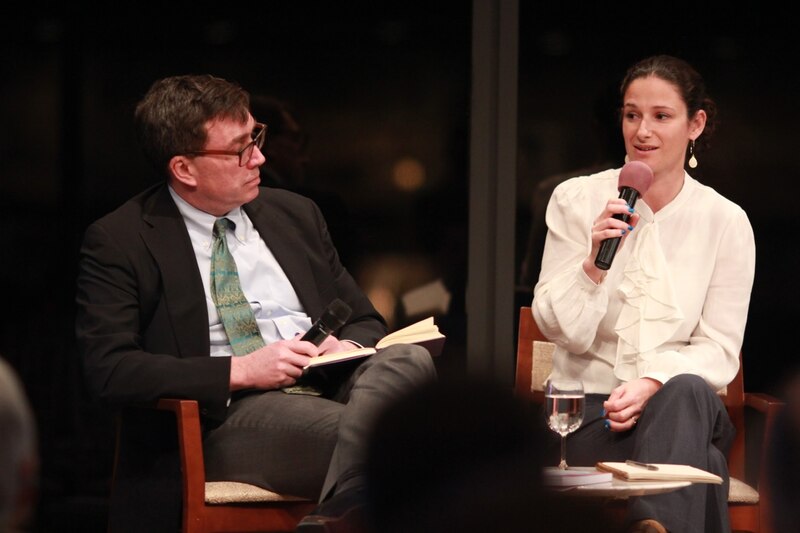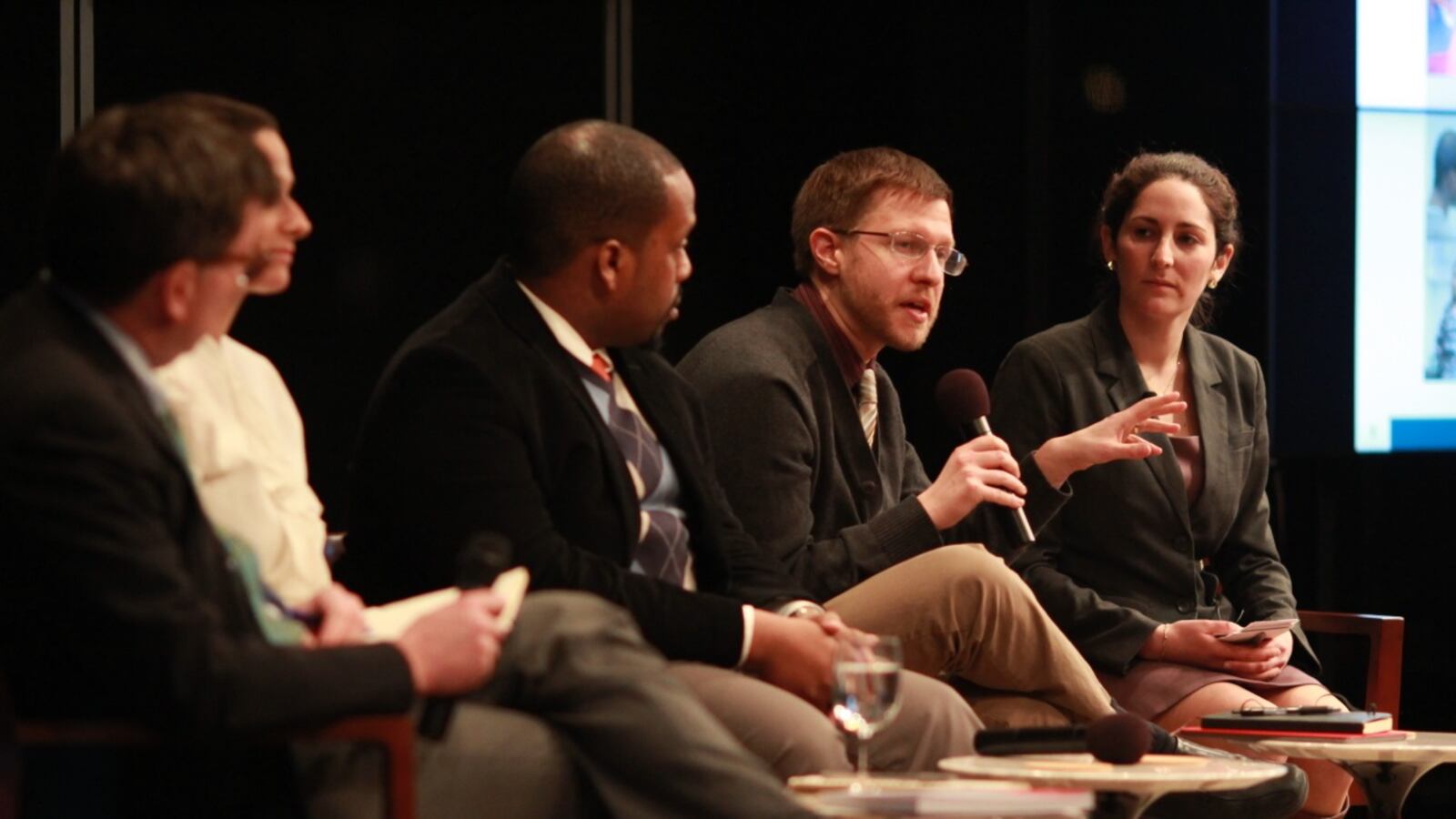On a recent school day, Ariel Sacks supervised student-led discussions in her eighth-grade English classes, then left Brooklyn Prospect Charter School a few minutes early to train teachers at a different school in the approach to teaching novels she had used in class that day.
Sacks described the day during an event Wednesday night about multi-tasking educators whom the Center for Teaching Quality, a co-host with Chalkbeat New York, calls “teacherpreneurs.” The three educators on the panel, which I moderated, all appeared in CTQ’s recent book, “Teacherpreneurs: Innovative Teachers Who Lead But Don’t Leave.”
Jose Vilson said missing school occasionally for other responsibilities, such as training teachers, pushed him to give his students more autonomy. Stephen Lazar (also a member of Chalkbeat New York’s Reader Advisory Board) said constantly “changing gears” among teaching, policy work, and school leadership responsibilities keeps him engaged. And Sacks said that while writing in addition to teaching isn’t easy, hearing about her book project showed students that even teachers need to revise their work.
Giving teachers space to play multiple roles keeps them engaged as they work to improve their schools, said New Visions president Bob Hughes, who also sat on the panel.
The hybrid role brings its challenges, panelists said, and audience members asked for advice about the kind of environment that’s needed to make “teacherpreneurship” work and how to navigate relationships with colleagues and principals. Here’s a selection of what the panelists said and what audience members learned, taken from Twitter.

If you have questions for the panelists, let us know!


